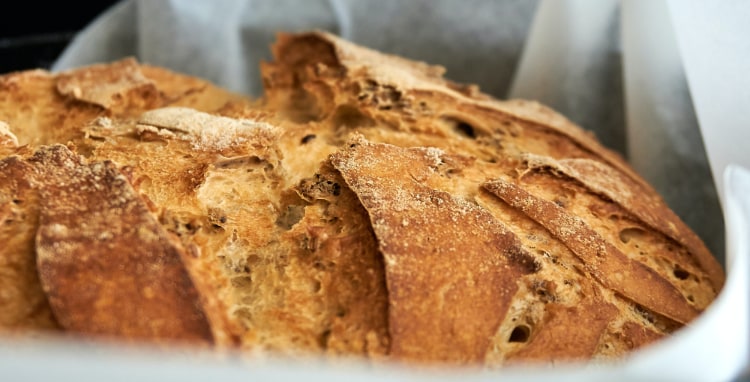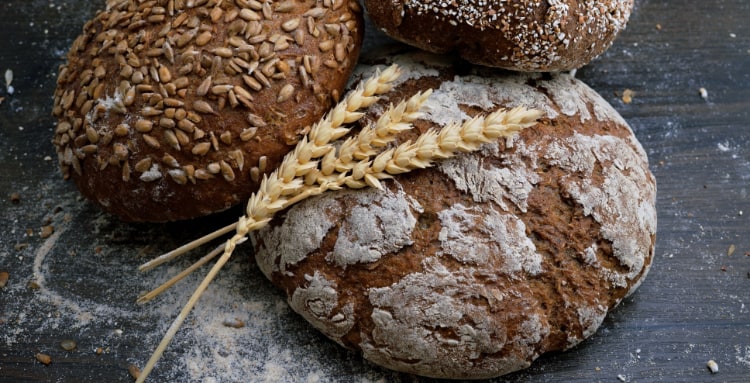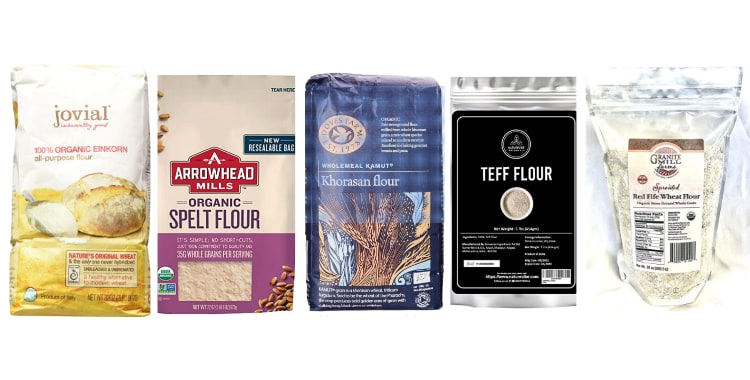
“Let’s talk about bread, baby, let’s talk about all the good things and the bad things that may be…”
With apologies to Salt ‘N’ Pepa (I’m starting to show my age!), bread isn’t as sexy as a topic as, well, sex. But actually in a way it is, because the conventional logic in natural health circles is that if you want to be slimmer and feel sexier, you’ve got to abstain from bread.
Personally, I don’t have bread every day or even close to every day. On the rare occasion I do eat bread, I’ll choose a gluten-free variety or organic sourdough cracked bread from Trader Joe’s.
And what about you? How often do you eat bread and other foods that contain gluten? If you’re eating gluten everyday, is this a ticking time bomb? Are you setting yourself up for an autoimmune disease or other serious health condition later on in life if you continue on your gluttonous gluten-filled path?
Here’s what I think about whether or not it’s necessary to go gluten-free…

Today’s Gluten: A Different Breed
When wild wheat was first collected some 20,000 years ago, it was much different than the wheat that’s harvested today. Through selective hybridization, wheat has been modified thousands of times.
Wheat, which contains gluten, the glue-like protein structures, is one of the most complicated species in terms of gene variation. You and I have about 25,000 genes that contribute to our individual traits. Wheat can contain as many as … get this … over 330,000 genes!!!
That’s right, wheat is more genetically complex than human DNA. But it wasn’t always like that. During the last 50-60 years or so, as the industrialization of food became the norm, wheat has become so bastardized that it would hardly be recognizable to the first agrarians who started cultivating it.
And as wheat has changed, so has gluten. The gluten molecules over the years have become larger. And modern wheat products contain more gluten than their ancient counterparts—gluten has become bigger and badder!
What does this mean for your health? If you’re eating lots of processed wheat and other foods that contain gluten, your blood sugar levels are going to suffer. That’s because modern wheat elevates blood sugar levels higher than ancient wheat varieties.
In fact, Dr. William Davis, author of the best-selling book from a decade ago, Wheat Belly, compared his blood sugar levels after consuming processed wheat bread compared to an ancient variety of wheat. With his baseline, fasting blood sugar at 84, Davis’ blood sugar spiked to 167 mg/dl after eating modern wheat bread. But after eating a variety of ancient wheat, his blood sugar rose to a far more moderate 110 mg/dl.
So you see, like most things in life, not everything is black and white. The devil is often in the details as they say.
The same is true with gluten. Gluten has a bad reputation, and for good reason; 99% of supermarket products contain highly-hybridized wheat gluten.
And with bigger gluten molecules and more of them, it’s no wonder that many people have bad reactions after eating gluten.
But not all gluten is bad…
Organic Sourdough Bread: Good Gluten?
Sourdough bread contains gluten. But there’s less gluten in sourdough than in wheat bread. Another benefit of sourdough is that it acts like a prebiotic fiber. Prebiotic fiber is what the good bacteria in your gut feed on in order to survive and thrive.
When I do eat sourdough bread, I always opt for organic. That’s because organic foods in general have less glyphosate. That’s the potentially-cancer causing herbicide and pesticide in Roundup weed killer that was developed by Monsanto, and the focus of over 125,000 lawsuits and counting.
Organic sourdough bread is fermented and contains more antioxidants than other varieties of bread. Plus, it’s easier on your belly to digest than wheat bread.

Gluten: The Older The Better
Besides sourdough bread, what other foods with gluten may actually be good for you? Try eating ancient varieties of wheat that have not been hybridized to the extent that modern wheat has, and that won’t spike your blood sugar as high.
Einkorn and emmer wheat are a couple examples. There’s also spelt, kamut, farro and teff.
Considering how used to modern wheat your taste buds are, it may take some getting used to ancient heirloom wheat varieties.
But if you don’t want to give up gluten and want to take charge of your blood sugar levels and your overall health, give ancient wheat a try. Unless you have a true allergy to gluten such as Celiac Disease, you’ll probably find ancient wheat is easy to digest and won’t cause wheat belly.

